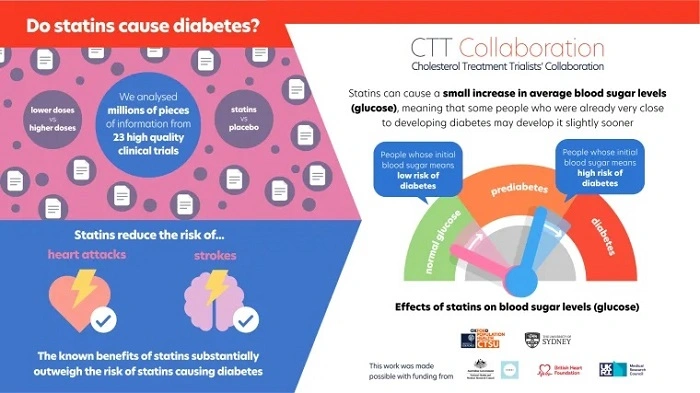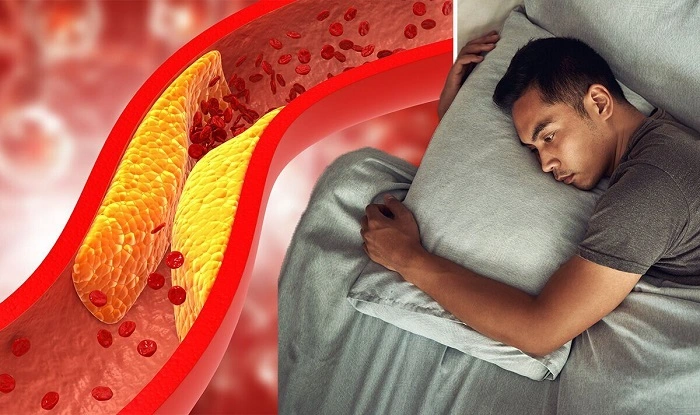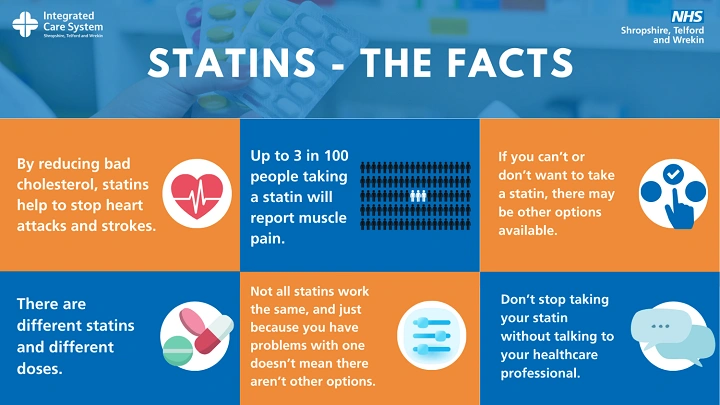It’s terrible when the doctor says, “Your cholesterol is too high.” The first thing you hear after that is statins, which is the most commonly prescribed drug to reduce cholesterol. Not for all of us, however. You may be one of those with an “I have high cholesterol but don’t want to take statins” tag.
You will be cautioned about side effects. You will sense that lifestyle change ought to be tried first. You are using nature’s own mechanisms of cardiac protection prior to drugs having a chance to gain a foothold. The advantage is that in nearly every case, there is a better option available that does not involve statins.
This book reveals the secrets and subtleties of what cholesterol is even, why you’re being placed on statins, and how to do it in a different way. It combines diet, exercise, supplements, patient accounts, and everyday life. You’ll be able to reduce your cholesterol after reading it not just without statins but as a chance to acquire life-long habits.
Understanding Cholesterol
What is Cholesterol?
Cholesterol is a form of fat. Your body employs it to create cells and hormones. Excess is bad. It collects in the arteries, clogs them, and causes heart disease.
Types of Cholesterol
- LDL (low-density lipoprotein): The “bad cholesterol.” Excess produces plaque buildup.
- HDL (high-density lipoprotein): The “good cholesterol.” It picks up LDL.
- Triglycerides: A blood fat. Excess elevates heart danger.
If triglycerides and LDL are high, and HDL is low, then there is an issue.
Why Most People Won’t Take Statins

Statins actually work. They reduce LDL and stop heart attacks. But most won’t.
Faults of Statins
- Muscle atrophy and aching.
- Stomach discomfort.
- Some patients get more susceptible to diabetes.
- Issue with long-term application.
- An inclination to try it first naturally.
It is prudent to look for alternatives. Some patients ask, “I have high cholesterol but don’t want to be on statins—what are the alternatives?”
Lifestyle as Medicine
Diet is the First Step
Your diet plays a significant role in cholesterol. Eating for a healthy heart will reduce LDL, raise HDL, and lower triglycerides.
Foods to Add
- Oats, barley, and whole grains.
- Beans, lentils, and chickpeas.
- Fatty fish like salmon, mackerel, and sardines.
- Fiber foods such as apples, pears, and berries.
- Fats: almonds and walnuts.
- Avocado and olive oil.
- Leafy green vegetables such as spinach and kale.
Restrict the following foods:
- Red meat and processed meat.
- Butter, cream, and cheese.
- Fried foods.
- Sweets and soft drinks.
- Fast food and processed snacks.
Foods That Help vs Foods That Harm
| Helpful Foods | Harmful Foods |
| Oats, barley, whole grains | White bread, pastries |
| Fatty fish | Fried chicken, fast food |
| Nuts and seeds | Chips and processed snacks |
| Fresh fruits and vegetables | Sugary desserts, sodas |
| Olive oil, avocado | Butter, margarine |
Exercise for the Heart
Exercise changes cholesterol. Exercise lowers LDL and raises HDL.
- Walking 30 minutes a day improves cardiovascular health.
- Cycling, swimming, or running exercises the cardiovascular system and heart.
- Strength training every other day is good.
- Gardening or dancing is activity too.
It is consistency that is wanted. Daily movement creates changes over time.
Weight Control
Overweight increases LDL and triglycerides. Weight loss 5–10% enhances figures. Slow habits in a patterned habit. Crash diets never succeed. Patterned habits win out.
Stopping Smoking
Smoking cigarettes decreases HDL and harms arteries. Quitting affects cholesterol in weeks and halves heart risk.
Reduction in Alcohol
Alcohol increases triglycerides way too high. In some, the solution is moderation. In others, the solution is quitting.
Natural Supplements
Natural supplements are no magic pills, but they can succeed.
- Omega-3 fatty acids: Reduce triglycerides. In fish oil or flaxseed.
- Red yeast rice: Looks like a natural statin but use with caution.
- Niacin (Vitamin B3): Increases HDL. Must be monitored.
- Psyllium husk: Soluble fiber reduces LDL.
Always consult a doctor before supplementing.
Cholesterol and Stress
Stress alters hormones. Increases LDL and triglycerides. Managing stress is as important as diet.
- Yoga.
- Meditation.
- Deep breathing.
- Getting out.
- Relaxing activities.
Mind and heart are intertwined.
Sleep and Cholesterol

Sleep deprivation increases LDL and decreases HDL. Get 7–9 hours tonight.
Good sleep habit—dark room, no computer or TV in the evening, regular times—catches cholesterol in its own.
Also Read: Eye Flashes: Interpreting the Glows of Light on the Edge of Your Perception
Patient Stories
Mark’s Story
Mark found out at age 52 that he had high cholesterol. He would not take statins. He modified diet, took daily walks, and cut down on fast foods. His LDL decreased 30 points in six months.
Linda’s Story
Linda’s history was family heart disease. She wasn’t concerned about statin side effects at all. She did yoga, used fiber, and fish oils as supplements. Her doctor was amazed at the better result in one year.
Tom’s Story
Tom was a smoker with cholesterol. He quit smoking and had a Mediterranean diet. He increased his HDL and lowered his risk score. He says, “I feel like I took control back.”
These are just some of the miracles of lifestyle as therapy.
After Without Statins
Follow-ups are appropriate if lifestyle is your preference and not medicine.
- Have blood checked every 3–6 months.
- Check cholesterol, triglycerides, and blood pressure.
- Modify exercise and diet if needed.
- Work with your physician to monitor for risk.
Consequences of Not Taking Statins
Statins are not everybody’s pill. Take them or lose them.
High-Risk Category
- Those who have heart attacks or strokes.
- Those who have diabetes with high LDL.
- Those who have very high cholesterol.
- Sickly family sickle heart medical history.
If you fall into one of these groups, lifestyle modification alone is not always the solution. A two-edged sword may be the solution.
Long-Term Plan
Cholesterol control is a marathon, not a sprint.
Practices to Emphasize
- High-fiber diet.
- Regular physical exercise. Daily.
- Good night’s sleep.
- Less stress.
- Don’t smoke.
- Drink in moderation. Alcohol.
Change in Lifestyle vs. Benefit
| Change in Lifestyle | Benefit |
| Increased fiber | Lower LDL |
| Physical exercise | Increases HDL, lowers LDL |
| Smoking cessation | Prevents the arteries |
| Reduction of stress | Decreases triglycerides |
| Weight loss | Improves cholesterol ratio |
FAQs About Cholesterol Without Statins
Can I lower cholesterol naturally without statins?
Yes, through diet, exercise, weight loss from healthy food, and supplements.
What foods lower cholesterol most?
Oats, legumes, nuts, fatty fish, fruits, vegetables.
Do natural supplements work?
Yes, some, and they have to be done under the doctor.
How long does it take to reduce cholesterol off meds?
3–6 months to notice an effect.
Is skipping statins ever okay?
No. High-risk people may still require them. Discuss with your doctor.
Conclusion
If what you are planning to do is, “I have high cholesterol but I won’t take statins,” you do have choices. Lifestyle change—diet, exercise, stress reduction, sleep, and supplements—is great and can have a big payoff. For most of us, these alone will reduce risk.
Statins are still needed by us with an extremely high risk. But for all of us, nature holds the key. The key is willpower and determination. Small daily change—oatmeal in place of donuts, walking in place of television, not smoking—amount to a healthy heart.
You can be on low cholesterol without taking statins. Education, regularity, and doctor care can help you keep your heart safe and get stronger day by day.


